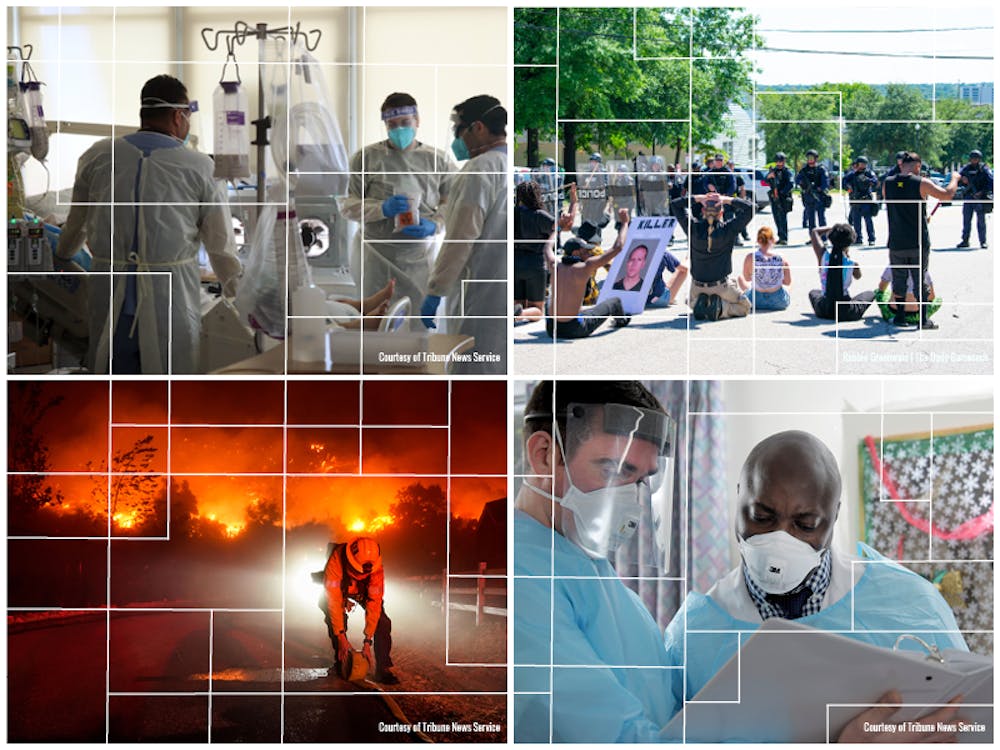Despite all the time spent talking about how horrible 2020 was, we’ve spent relatively little time looking at why it was so bad. Perhaps it seems obvious — there was a pandemic, if you haven’t heard – but if we don’t look past the obvious, then we can’t expect 2021 and beyond to be much better.
Really, writing about the bad parts of 2020 seems to be almost dangerously cliché; nearly everyone seems to echo the sentiment of the “worst year ever.” Unfortunately, much of this discourse has focused around the idea the United States’ institutions have somehow “failed.”
If only this analysis was true. In that case, the solution would be to fix the institutions – easier said than done, of course, but it would avoid the need to seriously rethink how our society is structured.
In reality, this sort of radical change is exactly what’s needed to avoid a repeat of 2020 (or worse). This more extreme response is needed because our institutions did not actually fail: They were never supposed to work in the first place.
Let’s start with the United States' response to the COVID-19 pandemic, undoubtedly one of the worst horrors of 2020. Some specific organizations did explicitly fail, such as the CDC, which was founded in order to stop epidemics but utterly failed to handle the early stages of the pandemic. However, when one looks at the overall U.S. healthcare system, it becomes clear that many of its component institutions actually succeeded because their goal isn’t to protect people’s health. It’s to make money.
They seem to be quite good at it, too. For example, health insurance companies doubled their profits during the second quarter of 2020 compared to 2019 and saw up to a 41% increase in their gross margins. The pharmaceutical industry is also doing alright, with Pfizer and BioNTech poised to make $13 billion from “their” vaccine, despite the fact crucial research was done by the federal government using taxpayer money.
While companies continue to cash in, more than 400,000 people have been killed by COVID-19 in the U.S. alone. If that’s a failure, then it’s a pretty profitable one. But for the companies it’s not a failure because the profit is the point.
2020 also saw the continuation of deadly police brutality and systemic racism. American police shot 1,000 people to death this past year, including 14 in South Carolina. Twenty-three percent of the victims were Black, which is disproportionately high when compared to the amount of Black people who live in the U.S.
This year’s uprisings triggered calls to reform the police. This strategy is based on the same assumption of “failing institutions" — a belief that police departments are actually a necessary force for order but that they're currently just broken. If local governments can implement the right series of reforms, this logic goes, then we can solve the problem of police brutality.
Unfortunately, the issue with police is similar to the issue with healthcare companies: It’s not something wrong with the institution, it’s that the institution itself is wrong. American policing has its origins in slavery and colonialism, and American police have a long history of persecuting immigrants, enforcing Jim Crow, busting unions and maintaining whatever they see as the ideal social order.
The fundamental purpose of the police is to enforce the state’s power, not to “protect and serve” people who happen to live in that state. There is no way to fix this sort of an institution, in the same way there is no way to fix the profit-seeking nature of a capitalist healthcare company.
Even though police brutality and the pandemic were not the only bad things to happen in 2020, the same lessons can be applied to other issues. From America’s imperialist wars to wildfires caused by man-made climate change, these crises can’t simply be blamed on failing yet fixable institutions, but on a system which is both unable and unwilling to address them.
If we want our future to be better than 2020, then the goal can't be to fix America's institutions, but to tear them down and build ones that actually prioritize human well-being.

